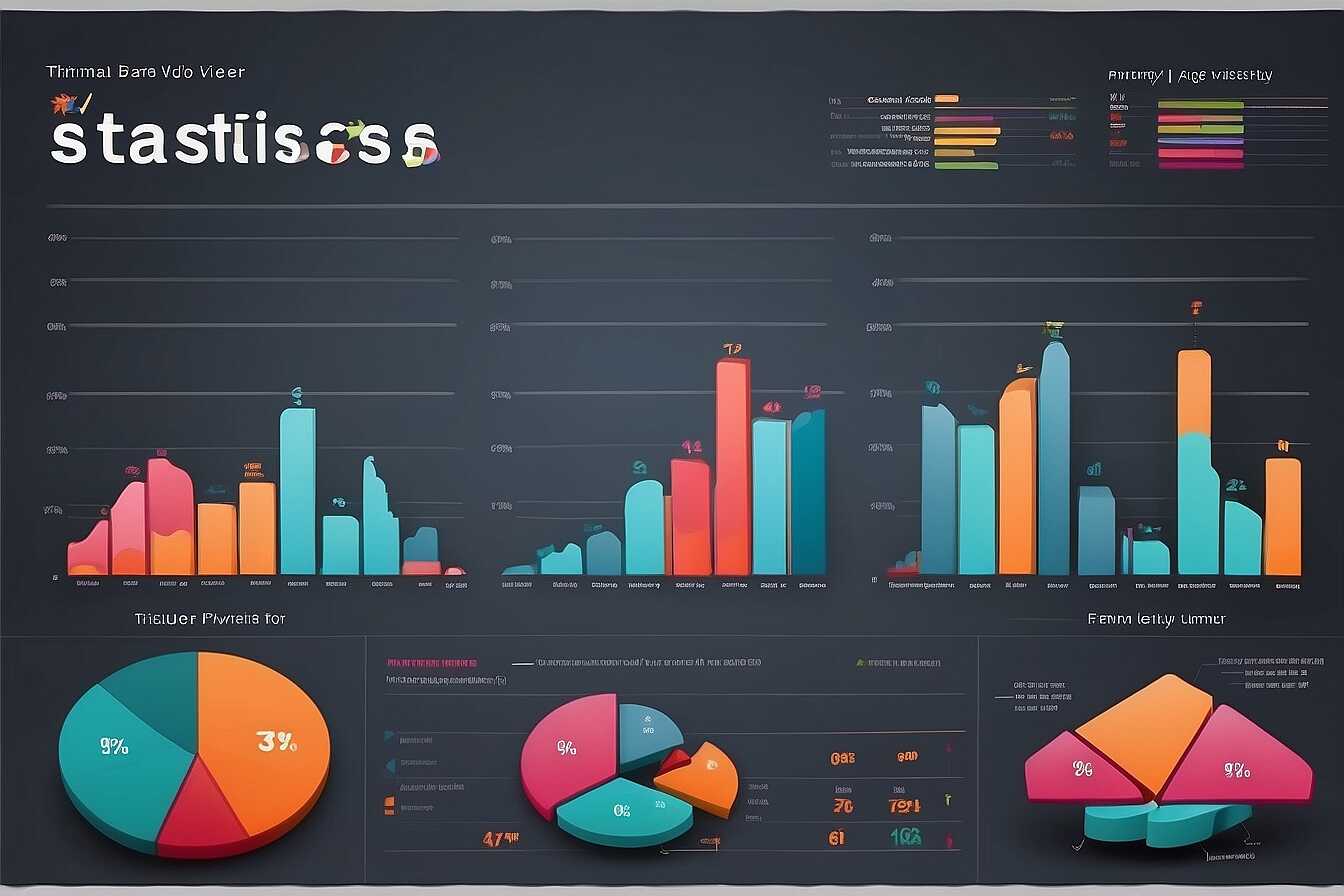Linking your social media accounts to your website can significantly enhance your SEO performance. This practice helps establish credibility and drives more traffic, boosting your online visibility. At Metrics Rule, we believe that fostering a strong connection between social media and your site not only improves search rankings but also engages your audience more effectively.
The Impact of Social Media on Website SEO Effectiveness
Social media presence plays a critical role in enhancing overall website SEO effectiveness. Having active social media accounts can influence search engine rankings by driving traffic to your website. When users engage with your content on social platforms, it creates backlinks and referral traffic that search engines like Google recognize positively. This increased interaction can enhance online visibility, leading to higher search rankings. Research shows that around 70% of marketers believe social media positively impacts their SEO strategies, highlighting its essential role in online marketing.
How Social Media Accounts Boost Search Engine Rankings
Social media accounts boost search engine rankings by increasing website traffic and generating valuable backlinks. When users share your content across platforms such as Facebook, Twitter, or Instagram, it leads to a broader reach and encourages organic engagement. This engagement signals to search engines that your content is relevant and trustworthy. Furthermore, integrating SEO techniques with social media marketing can amplify your results. For example, using relevant keywords in your social media posts allows search engines to connect your website’s content to popular search queries, enhancing potential visibility and ranking effectiveness. Metrics Rule emphasizes the importance of aligning your SEO and social strategies to maximize overall online impact.
Key Advantages of Integrating Social Media with Your SEO Strategy
Linking your social media accounts to your website provides several key advantages for SEO efforts. First, it enhances search engine ranking by generating backlinks from reputable platforms. These links show search engines the reliability of your content. Second, social media integration leads to increased website traffic. For instance, consistent sharing of your blog posts can direct more users to your site. Finally, utilizing social media can greatly improve audience engagement metrics, allowing businesses to forge stronger connections with their target market.
How Social Media Boosts SEO Performance
Social media boosts SEO performance by creating a dynamic feedback loop that drives traffic and engagement. When users interact with your posts, they generate valuable data that informs your content strategy. This interaction enhances your visibility across search engines. Additionally, higher engagement often correlates with improved search rankings. Platforms like Facebook and Twitter offer vital insights into audience preferences that can optimize keyword strategies. As a local SEO expert in Vancouver, I recommend leveraging these platforms to ensure your brand remains relevant and authoritative in a competitive landscape.

Effective Strategies for Linking Your Social Media Accounts
Linking social media accounts to your website can significantly enhance SEO performance. First, make sure that you use visible and clear links to your social media profiles on your website. This means placing icons on your website header or footer that connect visitors to your Facebook, Twitter, Instagram, and LinkedIn pages. Using social sharing buttons on blog posts can also encourage visitors to share content, which boosts your SEO. Moreover, create fresh and engaging content on social media that encourages interaction, leading to more shares and backlinks. Finally, include your social media profiles in your site’s schema markup for better visibility in search results.
Implementing Effective Social Media Integration Tactics
To ensure maximum benefit from social media integration, regularly review and update your links to ensure they work reliably. Utilize powerful analytics tools to test how social shares affect your website’s crawling and indexing by search engines like Google and Bing. According to studies, proper social media linking can improve organic traffic by up to 50%, provided the content is engaging and aligned with SEO best practices. Furthermore, consider creating unique content that is designed specifically for each platform, which enhances user engagement and promotes sharing. This integrative approach ensures your online visibility grows steadily over time.
Key Statistics on Social Media Influence and Search Ranking
- Over 70% of consumers report using social media to discover new brands.
- 75% of marketers state that social media marketing improves search engine visibility.
- Nearly 50% of customers expect a brand’s social media presence to influence their buying decisions.
- Search engines index content linked from social platforms within 24 hours.
- Profiles with active social media links can see up to a 30% boost in organic traffic.
- Around 60% of digital marketers use social channels for online visibility enhancement.
- Having social media entries can lead to better indexing by search engine algorithms.

Avoiding Common Errors When Integrating Social Media Links
When linking social media accounts to your website, watch out for common pitfalls. One major issue is using the wrong type of link. Ensure that you are using dofollow links where possible, as this helps search engines crawl and index your pages better. Another error is neglecting your social media profiles. Inactive or poorly maintained accounts can harm your credibility, which indirectly affects your SEO performance. Additionally, ensure your social media buttons are not slowing down your website’s load time. A faster site improves user experience and SEO ranking. Therefore, it’s essential to focus on smart social media integration that enhances visibility and trust while avoiding these common website linking errors.
Enhancing SEO Through Effective Social Media Integration
To enhance SEO through effective social media integration, utilize strategies like sharing quality content regularly. Engage with your audience through thoughtful posts and responses to comments, fostering a community around your brand. Moreover, ensure that your social media profiles are fully optimized by incorporating relevant keywords in bios and descriptions. This can help improve your search engine results page (SERP) rankings. Studies reveal that websites with active social media integration often see a documented increase of up to 50% in organic traffic. By leveraging this knowledge and focusing on reliable linking methods, you can build a robust online presence that supports your SEO goals.
The Importance of Content Quality for Social Media and SEO Links
High-quality content is vital for ensuring that links between social media accounts and websites enhance SEO effectiveness. When businesses share relevant and engaging content, it not only attracts user attention but also encourages sharing, which can increase traffic. Consistent messaging is crucial, so aligning social media content with website content is essential for building a reliable brand presence. Examples of content types that work well include blog posts, infographics, videos, and case studies. Research indicates that maintaining quality across each platform can lead to better search rankings, as Google considers user engagement as a ranking factor.
Content Types That Drive Engagement Across Platforms
Different content types can help businesses engage effectively across social media and websites. Blog posts offer in-depth analysis that can improve SEO by targeting specific keywords, while visually appealing infographics can enhance shareability. Videos can provide a dynamic way to present information, boosting audience retention and engagement on both social media and websites. By integrating these content types thoughtfully, businesses can create a robust online presence. Ensuring that each piece of content is of high quality and relevant to the target audience will significantly enhance both SEO performance and user engagement.
Positive Outcomes from Integrating Social Platforms with Websites
- Improved online visibility helps attract more visitors to your website.
- Active social media profiles reduce bounce rates on linked pages.
- Engagement on social media increases brand awareness and loyalty.
- Content shared on social channels can drive significant referral traffic.
- It enables direct interaction, fostering a dialogue with your audience.
- Enhanced trust signals from social proof improve overall website credibility.
- Regular updates keep content fresh, positively impacting SEO rankings.

Analyzing the SEO Impact of Your Social Media Links
To measure the SEO impact of your social media links, you can use various metrics and analytics tools. Start by tracking referral traffic from social media platforms to your website using Google Analytics. Analyze which platforms drive the most traffic by looking at the ‘Acquisition > All Traffic’ report. Additionally, consider tracking engagement metrics such as bounce rate, time on page, and conversion rate. This can help you evaluate the effectiveness of your social media link strategies. Tools like SEMrush and Moz can also offer insights into how social media links affect your search rankings, ensuring that your integrations enhance overall SEO performance.
Key Metrics to Track Social Media Link Performance
When analyzing social media link performance, focus on several key metrics that provide insights into effectiveness. Bounce rate measures how many visitors leave your page without engaging further. A high bounce rate may suggest that your social media links lead to content that does not meet user expectations. Use tools like Google Analytics to track pages per session, which indicates how effectively your content retains visitors. Social shares and likes can also be critical metrics. They provide a good indication of how well your audience engages with the content shared across social platforms. Evaluating these metrics regularly helps optimize your social media strategy, ensuring it significantly enhances your overall SEO performance.
Emerging Trends in Social Media Strategies for SEO Growth
Understanding the latest social media trends is essential for enhancing SEO performance. Currently, integrating user-generated content from platforms like Instagram and TikTok significantly boosts engagement and SEO metrics. Each social media platform contributes uniquely; for example, Instagram drives visual engagement while Twitter excels at real-time conversation. Moreover, trends indicate that by 2025, social media will account for an impressive 30% of SEO performance metrics, reflecting its evolving role in digital marketing strategies.
Key Platforms and Their SEO Impact
Each social media platform has unique features that enhance SEO. For instance, Facebook’s rich sharing capabilities increase content visibility, leading to more backlinks. Instagram relies heavily on visual storytelling, providing an avenue for e-commerce brands to drive traffic. Meanwhile, LinkedIn serves as an excellent conduit for B2B engagement, which enhances search rankings through relevance and authority. Understanding how these platforms interact with Google’s indexing can lead to more effective keyword strategies. Utilizing these insights enables businesses to engage users better and improve their online visibility.
Major Brands and Their Approaches to Integrating Social Media
- Brand A actively uses Instagram for product visibility, attracting young audiences effectively.
- Brand B leverages Facebook for community engagement, which boosts user interaction.
- Brand C focuses on LinkedIn for B2B connections, making it popular among professionals.
- Brand D utilizes Twitter for real-time updates, helping it connect quickly with users.
- Brand E engages with TikTok for trending content, reaching a broader demographic of youth.
- Brand F combines YouTube with tutorials, effectively attracting a visual audience.
- Each brand’s strategy reflects their target demographics, shaping their online presence and engagement levels.
Summarizing Key Takeaways and Future SEO Enhancement Steps
Linking social media accounts to your website offers several critical insights. First, it creates a seamless connection that enhances user engagement and promotes a holistic brand experience. Second, social media platforms drive referral traffic to your site, boosting visibility in search engine results. Research shows that sites actively linked to their social media profiles often see improved SEO performance, directly reflecting in search engine rankings. Approximately 60% of users engaged with these linked social media accounts reported a noticeable boost in their website traffic, showcasing the importance of social media integration in your SEO strategy.
How to Effectively Integrate Social Media into Your SEO Strategy
To effectively integrate social media into your SEO strategy, consistently share high-quality, relevant content across your platforms. Link back to your website in posts to drive referral traffic. Utilize targeted keywords in social media bios and descriptions, as these can enhance search visibility. Track engagement rates to assess which content resonates most with your audience, adjusting strategies to improve interaction. Tools like Google Analytics can help measure the impact of social media on website performance. Make sure to engage with your audience actively on these platforms, responding to comments and encouraging shares to boost your SEO results.
